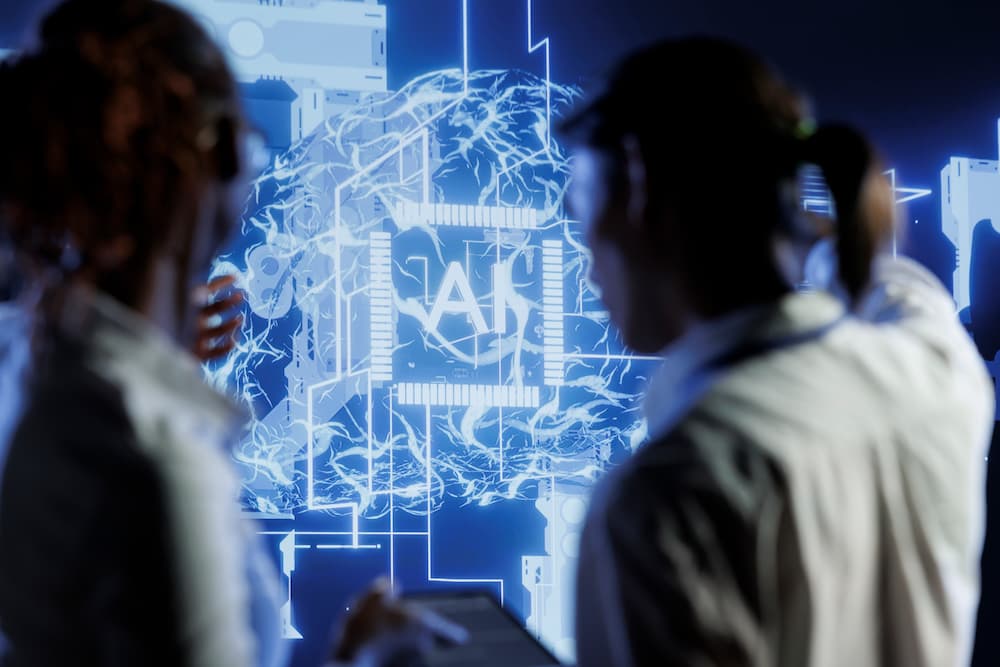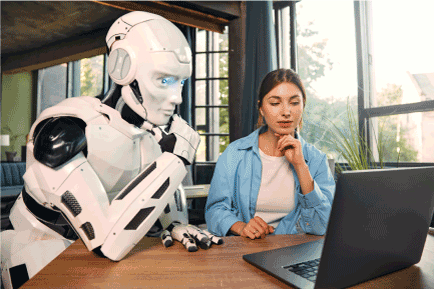
How do we construct computational machines that match or surpass human intelligence? This pivotal question stands at the heart of the foundational challenge that gave birth to the field of AI. Over its seven-decade evolution, AI's standard approach has focused on discrete capabilities and practical tasks, yielding significant technologies and theories but falling short of the field's original, ambitious goals. The term "narrow AI" describes systems designed for specific "intelligent" actions within particular contexts, requiring human intervention for even minor changes in behavior or context. Unlike humans, who naturally adapt and transfer knowledge across varying goals and circumstances, narrow AI lacks this broad, self-adaptive intelligence.
Imagine a highly efficient robot in a fruit packaging factory designed to sort apples from oranges on a conveyor belt. This robot, equipped with sensors and programmed algorithms, excels at identifying and sorting these fruits based on size, color, and shape. However, if the task changes slightly—say, sorting peaches from plums—this robot cannot adapt to the new task independently. It would require human programmers to adjust its algorithms or reconfigure its sensors. This robot exemplifies "narrow AI": exceptionally capable within its specific task but unable to generalize its intelligence to new, even slightly different, contexts without external intervention.
One way to understand the 'Artificial General Intelligence' (AGI) concept is to consider it antonym for 'narrow AI,' referring to AI systems with broad generalization capability. A system does not need to exhibit limitless generality, adaptability, and flexibility to be considered as "AGI." AGI aims to close the gap between today's narrow AI applications and the more versatile, often humanoid, intelligence depicted in science fiction, such as robots and advanced chatbots. Moreover, some researchers view AGI in an even broader sense, including potential synthetic minds beyond human understanding, making the precise definition of AGI a key research area within the field.
What is AGI and why does it matter?

How can learners prepare for an AGI future?
The impact of AGI on the workforce and learning signifies a profound transition toward a future where the collaboration between human intelligence and artificial general intelligence (Human-AI Teaming) reshapes every aspect of society. As the horizon of AGI draws closer (a decade or so), both learners and professionals face the pivotal task of preparing for a future that promises to be radically different from the present. Navigating this evolving landscape requires proactive adaptation and a lifelong commitment to learning. Here are key strategies to ensure readiness for an AGI-enhanced world:
- Embrace Interdisciplinary Learning: The complexity of AGI and its widespread implications necessitate a broad knowledge base. Learners should pursue interdisciplinary studies that combine STEM fields with humanities, social sciences, and the arts. This diverse educational foundation will foster the critical thinking, creativity, and ethical reasoning skills essential in an AGI future.
- Cultivate Adaptability and Continuous Learning: In a rapidly changing world, learning and adapting is paramount. Professionals should commit to continuous education through formal courses, online learning platforms, workshops, or self-study. Staying abreast of advancements in AI, machine learning, and related fields will be crucial.
- Develop Emotional Intelligence and Soft Skills: AGI will automate many technical tasks, but the human qualities of empathy, leadership, collaboration, and creative problem-solving will remain in high demand. Enhancing these soft skills can provide a competitive edge in the AGI era.
- Engage with Ethical and Societal Implications: Understanding AGI's ethical and societal impacts is vital. Engaging with these topics through reading, discussion, and participation in forums can help learners and professionals appreciate the broader consequences of AGI technologies and advocate for responsible development and implementation.
- By focusing on these areas, individuals can prepare themselves for the opportunities and challenges of an AGI future.
Our Office
GREER
South Carolina, 29650,
United States
South Carolina, 29650,
United States



